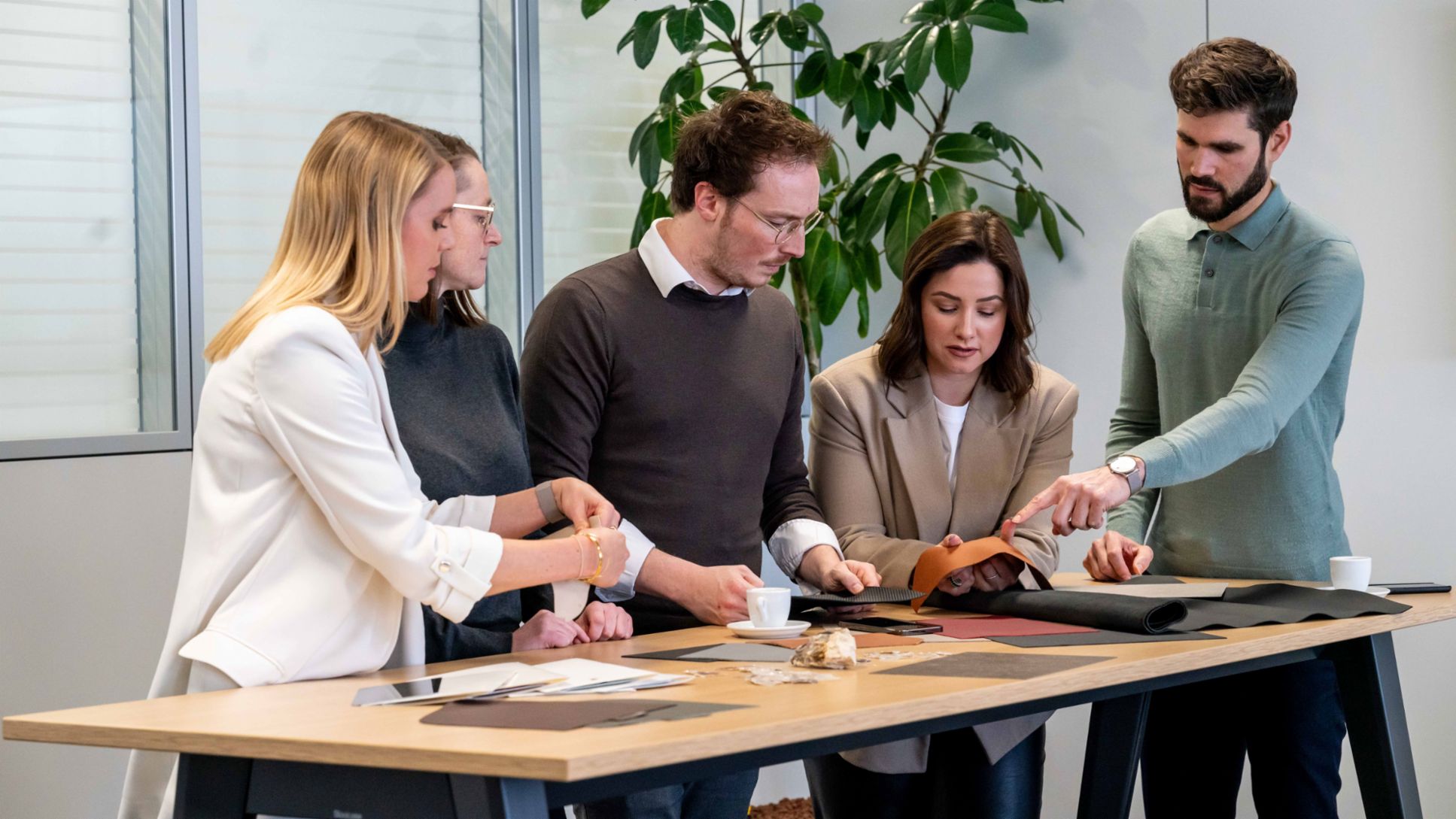The significance of the supply chain is growing constantly in the context of sustainability management. More and more new components and technologies are arriving, and the number of suppliers is rising. At the same time, as vehicles are increasingly electrified, the level of demand for high-risk raw materials - especially to build batteries - is also growing. The percentage of CO₂ emissions attributable to the supply chain will rise significantly. Overall, the importance of responsible, environmentally friendly raw material procurement methods that respect human rights is growing as a result.
Protection of human rights
As before, human rights are not respected in every region in the world. The United Nations has therefore called for immediate, effective action in order to bring an end to forced labor, modern slavery, human trafficking, and child labor.
Porsche rejects child labor, forced labor, and compulsory labor, as well as all forms of modern slavery and human trafficking, and takes consistent action to prevent such violations of human rights in its supply chains. The S-rating sets a clear priority in this context and is an important road map towards the UN goal: a rising proportion of direct suppliers of production material with a positive S-rating helps prevent modern slavery and child labor while bolstering decent, sustainable employment in the supply chain.
In 2022, preparations began to train security personnel in human rights policies and procedures. The measures are set to be implemented in subsequent years.
In the year under review, Porsche issued a declaration of its intent to observe and promote human rights, in which the Executive Board and Group Works Council commit to observe and promote human rights and safeguard good working conditions and fair trade.
Demanding sustainability from suppliers
Trust-based cooperation between Porsche and its direct suppliers is based on shared values. The Code of Conduct for Business Partners translates these values into requirements. The Code of Conduct compels all parties to observe environmental, social, and human rights standards:
- The direct suppliers of Porsche are forbidden to knowingly engage in any form of forced labor or compulsory labor, as well as any form of modern slavery, human trafficking, or child labor. Moreover, employees may not be harassed or discriminated against, whether due to their ethnic background, religion, nationality, sexual orientation, age, gender, physical or mental limitations, or membership in a union.
- Porsche also expects all direct suppliers to follow the OECD Due Diligence Guidance for Responsible Supply Chains of Materials from Conflict-Affected and High-Risk Areas.
Application of the sustainability rating
The S-rating is applied to all direct suppliers of production materials and selected direct suppliers of non-production materials. Porsche employees who deal with these suppliers are required to undergo mandatory training in this context. A digital learning module for employees in other divisions is also available.
Responsible procurement of raw materials
Porsche endeavors to uphold human rights standards in the raw materials supply chain. Porsche and the Volkswagen Group have developed a responsible raw material procurement management system in line with the OECD guidance. In 2022, the Volkswagen Group conducted several projects in which raw materials were analyzed in turn. Porsche is working in close cooperation with selected direct suppliers to verify the materials leather and mica. This improves transparency in the raw material supply chains. This enables Porsche to detect human rights risks at an early stage and take action accordingly.
Porsche is a member of the Responsible Mica Initiative, where it is involved in several responsible functions and programs. Via the Volkswagen Group, Porsche is also represented in the World Economic Forum’s Global Battery Alliance as well as the Initiative for Responsible Mining Assurance. For leather as a raw material, Porsche uses a product requirements document that requires the disclosure of the country of origin along with a specific sustainability certificate. Ever since the year under review, it has been mandatory for all newly awarded contracts to direct leather suppliers.
In 2022, Porsche summarized and published the most important findings and measures relating to responsible raw material supply chains in its Responsible Raw Materials Report. Since 2020, Porsche has been engaged in a pilot project together with a start-up to provide even greater transparency: it monitors freely available Internet sources and uses artificial intelligence to identify possible breaches by suppliers.
CO₂ emissions in the supply chain
Porsche has set itself an ambitious target - Porsche aims to be net carbon neutral across the entire value chain of its vehicles by 2030. The supply chains are currently responsible for around 20% of the CO₂ emissions that are relevant to the Decarbonization Index (DCI).
Porsche held numerous workshops with direct suppliers from relevant industries in 2022. Based on a hotspot analysis, they identified procurement volumes that had exceptionally high CO₂ emissions.
Of all the parts, high voltage battery cells are a key factor for CO₂ emissions in the supply chain for electric vehicles. Therefore, to reduce these emissions, measures have been defined which direct suppliers must now implement as requirements for all-electric series production car projects. In this context, the process of awarding contracts now encompasses requirements relating to the use of green electricity, CO₂-optimized primary materials, and recycled materials. This has been the case for all new contracts relating to production material for all-electric series production car projects from 2022.
Porsche holds strategic sustainability dialogues with selected direct suppliers, ensuring there is ongoing exchange regarding relevant topics. Together, they consider the opportunities and challenges and come up with ways to operate sustainably.
Certified environmental management system for direct suppliers
Porsche modified the environmental criteria of the S-rating in 2022: if a business partner employs more than 100 staff at its production sites, Porsche expects it to have in place an environmental management system certified under ISO 14001 or the European Union’s EMAS Regulation.
1 In deviation from the prior-year publication, the S-rating for 2021 was adjusted from 69.0% to 67.9%. The difference is attributable to adjustments in the purchasing volumes for 2021. (GRI 2-4)


